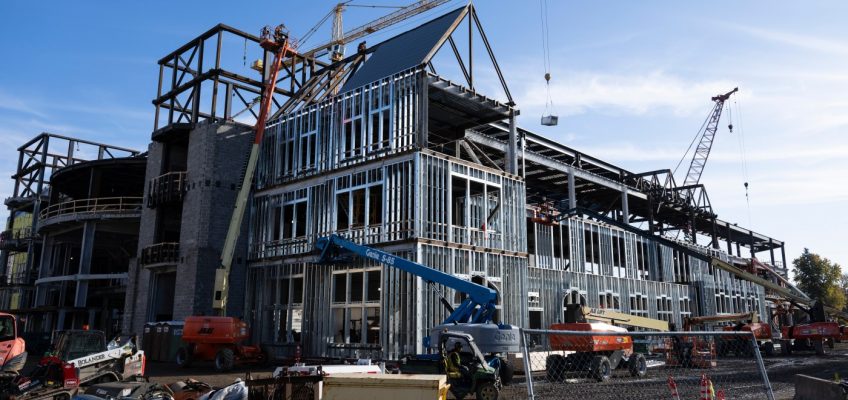A longstanding dispute between the University of St. Thomas and residents opposed to the university’s continued use of its Goodrich Avenue loading drive has been settled largely in the university’s favor.
The St. Paul City Council voted 5-1 Wednesday to support the university’s appeal of a Dec. 13 Planning Commission decision, which found that the university was in violation of a 2004 conditional use permit that requires the loading drive to be removed if the adjoining Binz Refectory is remodeled.
The university made $1.3 million in improvements to the building’s basement and ground level in 2022 and 2023, but kept the driveway in place, triggering opposition from Summit Avenue homeowners.
University officials have said the loading drive offers an important path into the south campus for emergency vehicles, but residents tired of seeing the headlights of delivery trucks in their front windows said it has become a drop-off location for university suppliers. They worry that traffic and drop-offs will increase as game-day visitors use the drive to access the future Lee and Penny Anderson Arena, a Division 1 basketball and hockey arena under construction nearby.
Interim Ward 4 Council Member Matt Privratsky made the motion on Wednesday to grant the university’s appeal of the December Planning Commission decision, with a handful of conditions.
Among the conditions, the loading drive may only be used for material deliveries to, and pick-ups from, the Binz Refectory building and the Brady Education Center, as well as by maintenance and emergency vehicles. The driveway may not be used for student, employee or visitor vehicle traffic, and it may not be connected to parking spaces accessed by those users, except during arena construction, for a period not to exceed two years.
Council President Rebecca Noecker cast the sole dissenting vote, noting the 2004 conditional use permit resulted from a legal settlement to a lawsuit involving the university’s planned campus expansion around Summit, Cleveland, Grand and Cretin avenues.
“I did not find any errors in the Planning Commission’s discussion of this item, which was quite lengthy,” Noecker told the council. “It seemed that the only question was why that condition was put in place in the first place, and therefore whether it was still necessary. Given that we don’t have insight into that question, because much of this discussion happened as part of a settlement conference, and we don’t have the record, we should uphold the condition in its plainest form.”
The 5-1 vote was in favor of the university’s appeal, with Council Vice President HwaJeong Kim absent.


Leave a Reply